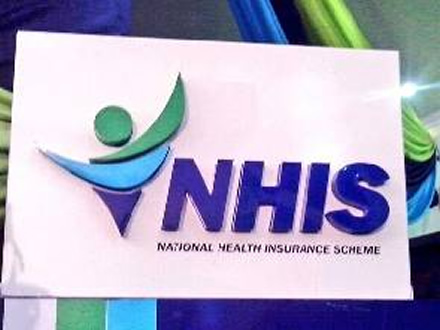Include child cancer in NHIS – World Child Cancer
 World Child Cancer (WCC), an organization that supports children with cancer has called on the government to incorporate the diagnosis and treatment of child cancers into the National Health Insurance Scheme (NHIS).
World Child Cancer (WCC), an organization that supports children with cancer has called on the government to incorporate the diagnosis and treatment of child cancers into the National Health Insurance Scheme (NHIS).
They explained that the inclusion would help early diagnoses and treatment of the disease and improve the survival rates of many children who die due to undiagnosed or late diagnosed.
Professor Renner Lorna, WCC Project Lead and Consultant, made the appeal at the launch of the Transforming lives of Children with Cancer initiative in Accra on Tuesday.
The three-year project being funded by the government of the United Kingdom, seeks to educate the public on childhood cancer and build the capacity of health professionals to manage and treat the disease.
Prof Lorna noted that cases of childhood cancer were expensive and that patient’s ability to access the NHIS would help improve early referrals among public health officials, and improving on diagnostic facilities.
Focusing on the new project to be implemented by the WCC, she stated that the project with a budget of $ 360, 000, would contribute to the attainment of sustainable Development Goals three that seeks to accelerate progress towards universal health coverage for children with cancer in Ghana.
Mr George Achempim, Country Representative, WCC, noted that the project had a target of reaching a total of 12,000 children with new cancer diagnoses.
He said the child cancer project would give specialist oncology training to 192 paediatricians, nurses and clinicians.
A cohort of 780 healthcare staff across the country, he disclosed would receive training on early warnings signs of child cancers.
Mr Achempim, WCC was dedicated to addressing the disparity of cancer care for children across in the country, saying, “Every child, no matter where they are born, should have equal access to the best possible treatment and care”.
Mr Joseph Dixon, Senior Programme Manager of WCC said as part of the project, there would be voluntary medical aid that would be provided through twinning partnerships, fund essential medicines and supportive services, which would otherwise not be available.
Some of the activities of the project, he said would include chemotherapy supplies, nutritional supplements, transport costs, community awareness initiatives, medical equipment and essential staff roles.
Mr Daniel Dogbetse, Head of Monitoring and Evaluation at the Ministry of Health noted that issue relating to cancer was prominent, hence, the development of a new National Strategy for Cancer Control in Ghana that provides key strategies and interventions for the management and control of major cancers.
He said the strategy would provide national direction, to help reduce cancer mortality by 30 per cent through primary prevention, effective screening and early detection; improve effective diagnosis and treatment of cancer.
Mr Dogbetse explained that it would also improve the quality of life for those with cancer and their family as well as support rehabilitation and palliative care.
Source: GNA
